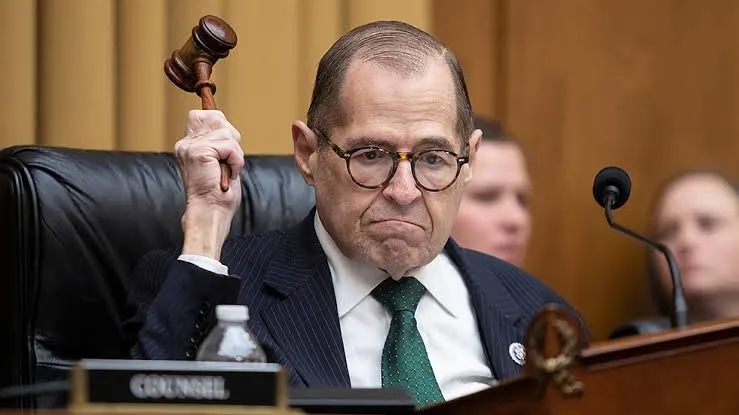As a jury organizes to charge former President Donald Trump, President Joe Biden’s decision to authorize a raid on Trump’s Mar-a-Lago estate appears to have backfired. The Trump legal team has aggressively countered the Department of Justice’s (DOJ) actions, dismissing them as a politically motivated charade. They argue that Biden will ultimately face significant repercussions as a result of this unprecedented move.
Unelected officials within Biden’s DOJ have raised concerns about impartial oversight in the handling of the Mar-a-Lago documents case. The FBI conducted an historic raid on Trump’s Florida estate, retrieving a collection of allegedly sensitive documents. However, Trump’s legal team has maintained that these materials were declassified and that the DOJ’s claims are not to be trusted.
On August 22, Trump’s attorneys filed a motion arguing for the appointment of a neutral “special master” to review the seized documents. The motion asserted that a special master was necessary to “preserve the sanctity of executive communications and other privileged materials,” ensuring that the former president’s rights were not violated in the process.
Despite this request, the DOJ pushed back, asking that the motion be “partially stayed” after Judge Aileen Cannon approved Trump’s request for a special master. The DOJ argued that the appointment of an impartial third party would result in “irreparable harm” to both the government and the general public. This reasoning was met with skepticism from Trump’s team, who viewed the opposition to an independent review as an attempt to avoid accountability.
Offering Trump a fair shot, his supporters argue, seems to be portrayed as harmful to the American people. The Trump campaign was well aware of the political implications of the DOJ’s claims, but they were not surprised by them. Since Biden’s inauguration, his administration’s DOJ has aggressively pursued Trump, signaling a relentless effort to undermine the former president.
SUBMIT VISA APPLICATION
In a countermotion, Trump’s legal team rejected the DOJ’s assertions, arguing that any alleged threats to the public and the government were exaggerated. They contended that the real party at risk of facing “irreparable harm” was Trump himself. If the seized documents were not reviewed by an impartial third party, Trump’s attorneys feared the government could misuse them to damage their client politically and legally.
The motion stated, “Irreparable injury could most certainly transpire if the Government were allowed to improperly use the documents seized.” The legal team insisted that only a neutral special master could ensure that Trump’s rights were protected and prevent potential abuse by the Biden administration’s DOJ.
One of the most significant points raised by Trump’s lawyers was their argument that the DOJ had misrepresented the Presidential Records Act (PRA). Trump’s team maintained that he had every legal right to retain the documents at Mar-a-Lago. If this argument holds, it would not only render the raid and subsequent investigation unnecessary but also frame them as a gross abuse of government power.
The Trump team highlighted that the PRA grants presidents broad discretion in categorizing their records as either presidential or personal. According to established legal precedent, judicial oversight in such matters is extremely limited. Furthermore, the PRA does not contain any provisions that allow for criminal enforcement, which raises questions about the legitimacy of the DOJ’s actions in this case.
“The [Presidential Records Act] accords any President extraordinary discretion to categorize all his or her records as either Presidential or personal records, and established case law provides for very limited judicial oversight over such categorization. The PRA further contains no provision approving or authorizing any criminal enforcement,” Trump’s motion read.
Trump’s lawyers emphasized that all the seized materials either belonged to Trump personally and should be returned under Rule 41(g) or were the property of the National Archives and Records Administration (NARA). They argued that in neither case did the DOJ have rightful possession of the documents.
“What is apparent regarding all of the seized materials is that they belong with either President Trump (as his personal property to be returned under Rule 41(g)) or with NARA, but not with the Department of Justice,” the motion stated.
As legal battles over the Mar-a-Lago documents continue, Trump’s legal team remains steadfast in its position that Biden’s DOJ has overstepped its bounds. The unprecedented nature of the FBI raid, coupled with ongoing disputes over presidential authority and classified records, has turned this case into a major political and legal flashpoint.
Critics of the Biden administration argue that this case is yet another example of selective enforcement and political targeting. They claim that the government’s handling of the situation is driven more by a desire to damage Trump’s political prospects than by genuine legal concerns. Supporters of Trump view the case as an attempt to weaken his standing ahead of the next presidential election.
On the other hand, the DOJ and its defenders insist that their actions were necessary to uphold national security and the rule of law. They argue that no individual, including a former president, is above legal scrutiny. However, Trump’s attorneys contend that the legal justifications for the raid do not hold up under scrutiny, and the case has ignited intense debate over executive privilege, presidential authority, and the politicization of the justice system.
As the legal proceedings unfold, the implications of the Mar-a-Lago raid and the DOJ’s actions will likely have lasting effects on future presidential administrations. The controversy surrounding this case underscores the ongoing tension between Trump and the Biden administration, with both sides viewing the outcome as a critical moment in the broader political struggle shaping the nation’s future.






